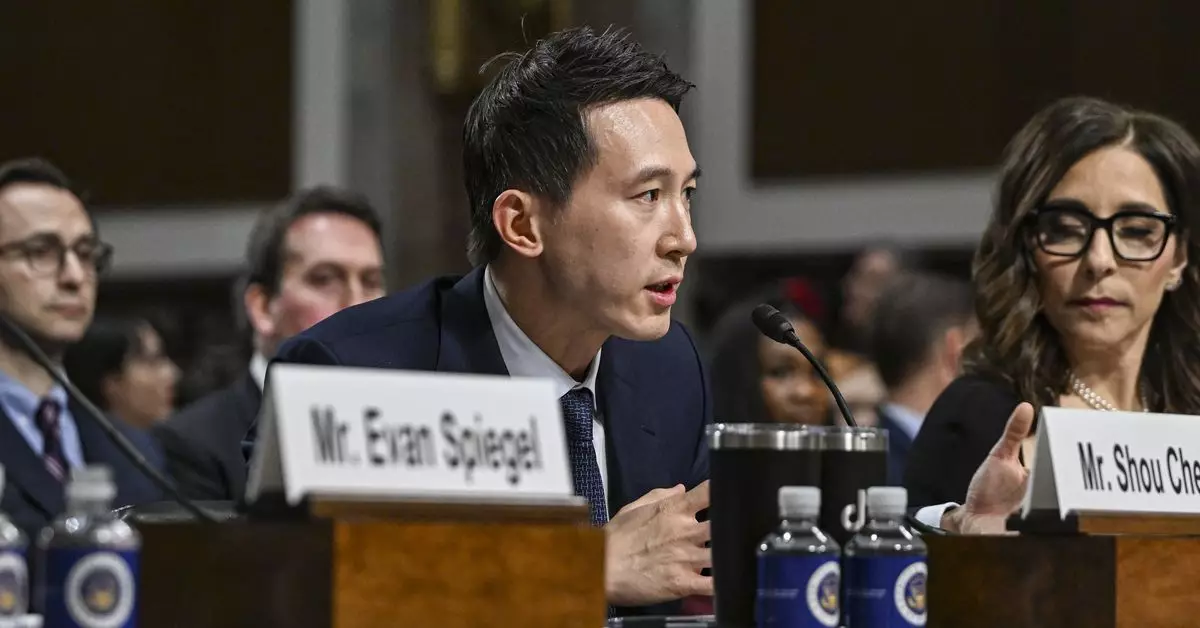Today’s hearing on child safety, held by the Senate Judiciary Committee, was meant to address the potential dangers posed by various social media platforms. However, what started as a focused discussion took an unexpected turn when the topic shifted to TikTok’s Chinese ownership. This article delves into the unnecessary distractions that arose from this tangent, highlighting the unfounded concerns and questionable motives behind the line of questioning.
The Emotional Focus on Child Safety
Throughout the hearing, many lawmakers emphasized the emotional impact of online harm on children. Families who had experienced their kids being targeted by predators or otherwise harmed online were in attendance, adding weight to the seriousness of the topic. It was crucial to address ways in which platforms like TikTok could improve child safety measures.
Concerns about Data Storage Policies and Chinese Government Influence
While some lawmakers briefly touched upon legitimate concerns regarding TikTok’s data storage policies and Chinese government influence over its moderation, these points were overshadowed by the misguided focus on TikTok’s Chinese ownership. Lawmakers asked TikTok CEO Shou Zi Chew for an update on Project Texas, the platform’s data security initiative, but soon veered off into unrelated questions.
Sen. Tom Cotton from Arkansas took the opportunity to aggressively question Chew about his citizenship, insinuating that Chew’s Singaporean background somehow made him untrustworthy. Cotton pressed Chew about his passport and potential membership in the Chinese Communist Party, despite it being publicly known that Chew is Singaporean and not a Chinese citizen. Chew’s frustrated response of “Senator! I’m Singaporean!” clearly showed his exasperation with the irrelevant line of questioning.
Cotton’s line of questioning, as described by The Washington Post’s Drew Harwell, was depicted as “McCarthy-esque.” This comparison to the notorious McCarthy witch-hunts is both unjustified and inappropriate. Chew’s background and relationship to China had already been thoroughly discussed in a previous congressional hearing, making Cotton’s insistence on bringing it up again perplexing.
Questionable Motives and Xenophobia
The underlying problem with this line of questioning was the use of Chew’s foreignness as a distraction, completely unrelated to the topic under discussion. By continuously focusing on his citizenship and attempting to associate him with the Chinese Communist Party, Cotton seemed intent on undermining Chew’s credibility based on his ethnic background. This type of xenophobic questioning does little to advance the goal of child safety and only serves to detract from the real issues at hand.
Double Standards and Unfair Targeting
It is worth noting that other tech giants, such as Apple, have faced criticism regarding their relationship with the Chinese government without facing similar levels of scrutiny. Tim Cook, Apple’s CEO, has never been questioned about his affiliations or accused of harboring ulterior motives due to his business dealings with China. The disparate treatment of Chew and TikTok raises questions about double standards and unfair targeting.
Maintaining Focus on Child Safety
The Senate hearing on child safety should have remained centered on the issues at hand. Rather than allowing the discussion to be derailed by unfounded concerns about Chinese ownership, the focus should have been on exploring practical steps to improve the safety of children on social media platforms. Tangents distract from the urgency of addressing these important issues and hinder progress in creating a safer online environment for young users.
The unnecessary distraction caused by the tangent regarding TikTok’s Chinese ownership during the Senate hearing on child safety underscores the need to prioritize relevant discussions surrounding the protection of children online. It is vital that lawmakers and stakeholders remain focused on effective solutions rather than succumbing to misguided questions designed to undermine individuals based on their ethnicity or foreign background. By maintaining a clear focus, we can make meaningful progress in enhancing child safety in the digital age.


Leave a Reply